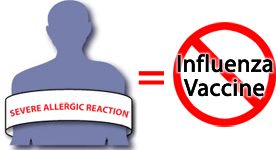Difference between Contradiction and Contraindication
Key Difference: In logic, the law of contradiction states that a statement and its opposite cannot be true at the same time. Contraindication is a term that is used in the medical field and refers to a condition that gives the practitioner or doctor to withhold a certain medical treatment because it is harmful for the patient.
 The terms ‘contradiction’ and ‘contraindication’ may seem quite similar because of how close they are in terms of spelling; however, these are two different terms used in different fields. Contradiction is used in logic and everyday language, while contraindication is used in the medical field.
The terms ‘contradiction’ and ‘contraindication’ may seem quite similar because of how close they are in terms of spelling; however, these are two different terms used in different fields. Contradiction is used in logic and everyday language, while contraindication is used in the medical field.
In logic, the law of contradiction states that a statement and its opposite cannot be true at the same time. A contradictory statement is made up of two parts, one part stating of an instance of something happening, while the second half states that is cannot happen. This statement implies the truth and the falsity of something. For example: A is equal to B, but B is not equal to A. This term becomes a contradictory statement as the first part states that A is equal to B, but the second statement states that A is not equal to B. This would make the first statement false as well, resulting in a contradiction.
Dictionary.com defines ‘contradiction’ as:
- the act of contradicting; gainsaying or opposition.
- assertion of the contrary or opposite; denial.
- a statement or proposition that contradicts or denies another or itself and is logically incongruous.
- direct opposition between things compared; inconsistency.
- a contradictory act, fact, etc.
Examples of contradiction:
- I love you and I don't love you.
- Butch is married to Barb but Barb is not married to Butch.
- I know I promised to show up today, but I don't see why I should come if I don't feel like it.
- The restaurant opens at five o'clock and it serves dinner between four and nine.
- John Lasagna will be a little late for the party. He died yesterday.

Contraindication is a term that is used in the medical field and refers to a condition that gives the practitioner or doctor to withhold a certain medical treatment because it is harmful for the patient. This treatment could include a drug, procedure or surgery. There are two types of contraindication: relative contraindication and absolute indication. Relative contraindication refers to a situation where two drugs should not be mixed unless the benefit of them will outweigh the damage done to the patient. Absolute contraindication refers to an event where something is strictly prohibited and the person should look for alternatives.
Merriam Webster defines ‘contraindication’ as:
- something (as a symptom or condition) that makes a particular treatment or procedure inadvisable
Examples of contraindication:
- Children and teenagers with viral infections should not be given aspirin because of the risk of Reye's syndrome
- A person with an anaphylactic food allergy should never eat the food to which they are allergic.
- A person with hemochromatosis should not be administered iron preparations.
- A person that has an allergy to penicillin should not be administered penicillin.
- Pregnant women should not be made to take x-rays, unless it is a life or death situation. (Relative contraindication)
Image Courtesy: joshuaflom.com, 2a.cdc.gov









Comments
Anonymous
Sun, 12/06/2015 - 09:21
Thank you. It has been fixed.
dbadmin
Tue, 11/29/2016 - 14:18
Add new comment